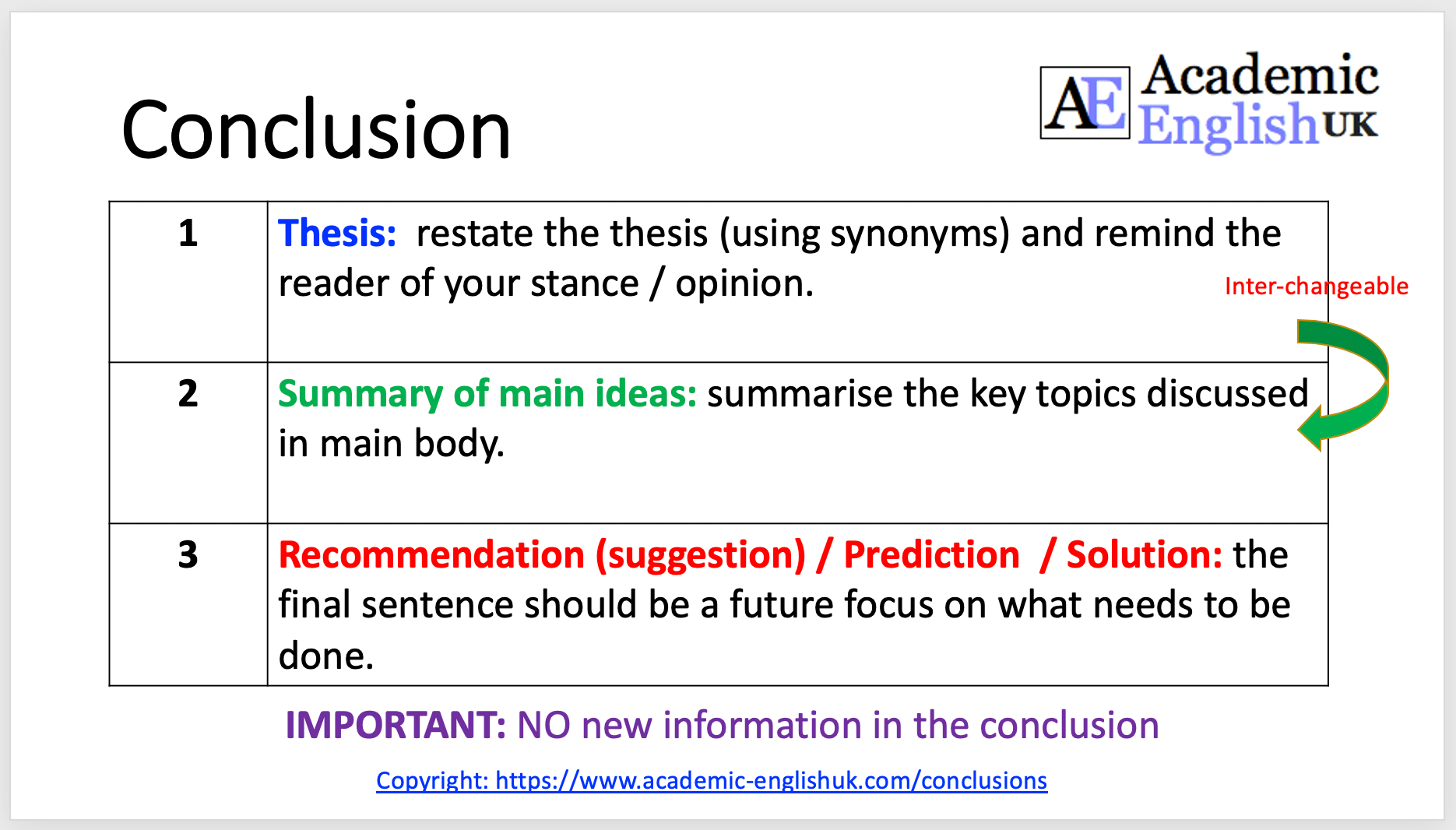
Dissertation Conclusion Help
· The conclusion is the very last part of your thesis or dissertation. Its main purposes are to: Clearly state the answer to the main research question; Summarize and reflect on the research; Make recommendations for future work on the topic; Show what new knowledge you have contributed; The conclusion should be concise and engaging · Depending on the type of dissertation, the conclusion should typically be around % of the overall word count. An empirical scientific study will often have a short conclusion that concisely states the main findings and recommendations, while a humanities dissertation might require more space to conclude its analysis and tie all the chapters together in an Structure Of Dissertation Conclusion Sample To be honest, there is no specific plan that you should follow to cope with this type of writing. It just includes standard things in the way you like and in that chronology that appeals to you. The major thing that should be mentioned in every conclusion is the importance of your research

Dissertation Conclusion: What Is It?
· The conclusion is the very last part of your thesis or dissertation. Its main purposes are to: Clearly state the answer to the main research question; Summarize and reflect on the research; Make recommendations for future work on the topic; Show what new knowledge you have contributed; The conclusion should be concise and engaging The very first step is to check the practical requirements of your educational programme. This determines the scope of what it is possible for you to research. Start by thinking about your areas of interest within the subject you’re studying. Examples of broad ideas include The dissertation conclusion summarizes the most valuable scientific research provisions, summarizes its results, shows the validity of the new provisions put forward by the author, and raises issues that still need to be addressed. The ending

Hire an Expert Writer
Structure Of Dissertation Conclusion Sample To be honest, there is no specific plan that you should follow to cope with this type of writing. It just includes standard things in the way you like and in that chronology that appeals to you. The major thing that should be mentioned in every conclusion is the importance of your research · Depending on the type of dissertation, the conclusion should typically be around % of the overall word count. An empirical scientific study will often have a short conclusion that concisely states the main findings and recommendations, while a humanities dissertation might require more space to conclude its analysis and tie all the chapters together in an · The conclusion is the very last part of your thesis or dissertation. Its main purposes are to: Clearly state the answer to the main research question; Summarize and reflect on the research; Make recommendations for future work on the topic; Show what new knowledge you have contributed; The conclusion should be concise and engaging

Table of contents
The dissertation conclusion summarizes the most valuable scientific research provisions, summarizes its results, shows the validity of the new provisions put forward by the author, and raises issues that still need to be addressed. The ending · The conclusion is the very last part of your thesis or dissertation. Its main purposes are to: Clearly state the answer to the main research question; Summarize and reflect on the research; Make recommendations for future work on the topic; Show what new knowledge you have contributed; The conclusion should be concise and engaging The very first step is to check the practical requirements of your educational programme. This determines the scope of what it is possible for you to research. Start by thinking about your areas of interest within the subject you’re studying. Examples of broad ideas include

Does your Dissertation Have the Following?
The very first step is to check the practical requirements of your educational programme. This determines the scope of what it is possible for you to research. Start by thinking about your areas of interest within the subject you’re studying. Examples of broad ideas include · The conclusion is the very last part of your thesis or dissertation. Its main purposes are to: Clearly state the answer to the main research question; Summarize and reflect on the research; Make recommendations for future work on the topic; Show what new knowledge you have contributed; The conclusion should be concise and engaging In general, a good dissertation conclusion chapter should achieve the following: Summarise the key findings of the study. Explicitly answer the research question (s) and address the research aims. Inform the reader of the study’s main contributions. Discuss any limitations or
No comments:
Post a Comment